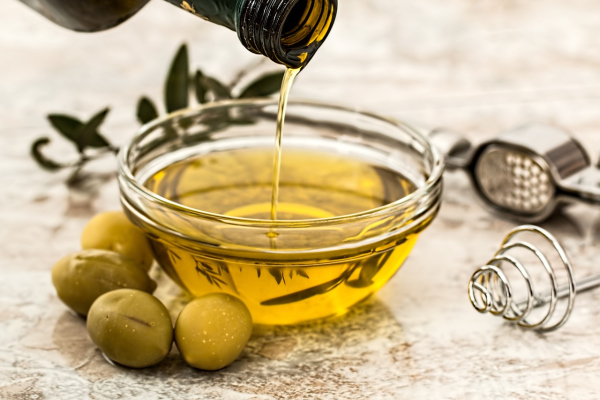 |
The Finest Harvest in Every Bottle:PDO/DOP Certified Extra Virgin Olive Oils |
 |
The Finest Harvest in Every Bottle:PDO/DOP Certified Extra Virgin Olive Oils |

The Science Behind Extra Virgin Olive Oil ExtractionExtraction MethodsExtra virgin olive oil (EVOO) is extracted using methods that preserve its natural flavors and nutrients. The most common methods are cold pressing and centrifugation. These techniques ensure that the oil retains its high quality and health benefits. Cold PressingCold pressing involves mechanically pressing the olives without the use of heat. This method helps retain the oil's polyphenols and antioxidants, resulting in a higher quality product. The process begins with the harvesting of ripe olives, which are then washed to remove dirt and debris. The olives are ground into a paste using stone mills or modern steel blades. The paste is slowly churned in a process called malaxation, which allows the tiny oil droplets to combine. The oil is then separated from the paste using a centrifuge or decanter. This careful process ensures that the oil is not exposed to heat, which can degrade its quality. CentrifugationCentrifugation uses a high-speed spinning process to separate the oil from the olive paste. This method is efficient and helps maintain the integrity of the oil. The process starts with the same steps as cold pressing, including harvesting, washing, and grinding the olives into a paste. The paste is then fed into a centrifuge, which spins at high speeds to separate the oil from the water and solid particles. This method is particularly effective in large-scale production and helps produce high-quality EVOO with minimal processing. Quality ControlQuality control measures, such as acidity testing and sensory evaluation, ensure that the extracted oil meets the standards for EVOO. Low acidity and a balanced flavor profile are indicators of high quality. Acidity testing measures the free fatty acid content in the oil, which should be less than 0.8% for EVOO. Sensory evaluation involves trained tasters who assess the oil's aroma, flavor, and mouthfeel. The oil must be free from defects and exhibit positive attributes such as fruitiness, bitterness, and pepperiness. Factors Affecting QualitySeveral factors can affect the quality of EVOO, including:
Expert InsightsFood scientist Dr. Emily Stone states, "The extraction method significantly impacts the quality and flavor of extra virgin olive oil. Cold pressing and centrifugation are the preferred methods for producing high-quality EVOO. These methods help retain the oil's beneficial compounds and rich flavors." Consumer TipsWhen purchasing EVOO, look for oils that specify the extraction method on the label. Cold pressed and centrifuged oils are likely to be of higher quality. Check for certifications such as PDO (Protected Designation of Origin) or PGI (Protected Geographical Indication) to ensure the oil meets strict quality standards. Learn more about the health benefits of EVOO in our article on Health Benefits of Extra Virgin Olive Oil. Discover why cold pressed EVOO is superior in Why Cold Pressed Extra Virgin Olive Oil is Superior and explore different olive varieties in Exploring Different Olive Varieties Used in Extra Virgin Olive Oil. |
Disclaimer: Some articles on this site mention various health benefits of extra virgin olive oils. Some of the benefits have been researched and some are from individual's personal experiences. In any case, these articles are not intended to act as a medical reference. If you are using, or are considering using olive oil for specific health related issues, you are advised to speak with your health care provider for advice pertaining to your situation. These articles are for educational purposes only.